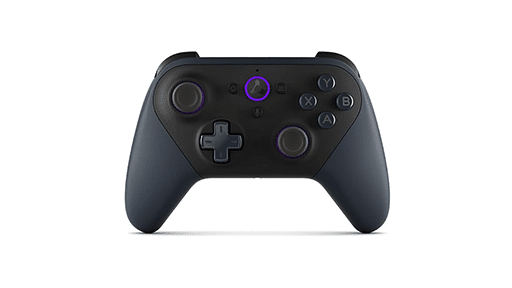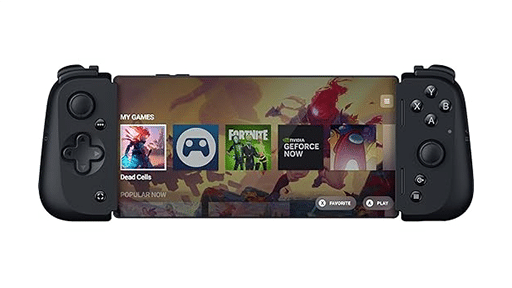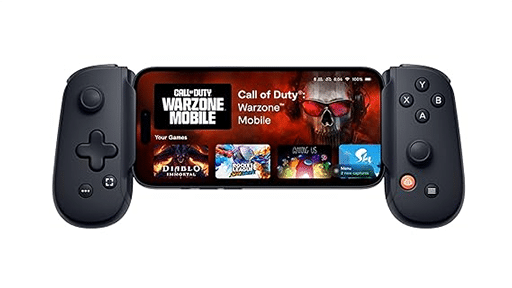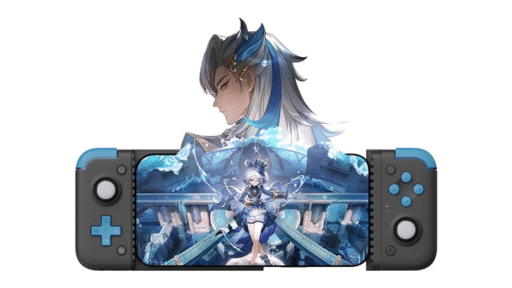
Earlier today, Microsoft pulled back the curtain on Muse, a new AI model designed to help with gameplay creation and ideation. Developed in partnership with Microsoft Research and Xbox Game Studios’ Ninja Theory, Muse is an AI-driven system capable of generating gameplay sequences and even predicting how in-game physics and controls will react.
This sounds impressive on paper, but like any major advancement, it brings both exciting possibilities and serious concerns. Could Muse help developers bring ideas to life faster, preserve classic games, and push gaming innovation forward? Or will we see AI-generated games flood digital storefronts, making it harder for handcrafted creativity to stand out?
AI in gaming is moving faster than ever, and Muse is a huge step in that direction. Whether it will be a breakthrough or a problem remains to be seen. Let’s dig in.
Can Muse Help Preserve Classic Games?
One of the biggest potential benefits of Muse is its ability to make older games playable again. Many classic titles are stuck on obsolete hardware, making them difficult to access today. Microsoft has hinted that Muse could help bring these games to modern devices, though it hasn’t specified exactly how.
This could be great for game preservation, but it also raises concerns. If AI is rebuilding games instead of emulating them, will they still feel the same? Could AI misinterpret details or alter mechanics unintentionally?
I love the idea of keeping old games alive. But if AI starts replacing proper remasters or emulation, we could end up with AI-processed versions that don’t fully capture the original experience. If Muse can help without altering what makes these games special, it could be an amazing tool.
What Makes Muse Different from Other AI in Gaming?
Unlike AI that generates game assets or dialogue, Muse is designed to produce actual gameplay sequences. Microsoft’s World and Human Action Model (WHAM) allows Muse to analyze movement, physics, and player input to create content that fits within a game’s structure.
This could be hugely beneficial for developers. AI tools already assist in speeding up asset creation, but Muse goes further by helping with gameplay design itself. That’s exciting, but it also raises a major concern: How much of game development will stay in human hands?
Muse is being positioned as a tool to assist developers, not replace them. But if AI can generate levels, enemies, and gameplay mechanics, will game design become too automated? Developers may end up adjusting AI-generated content rather than designing from scratch, which could flatten creativity if not used carefully.
Some in the industry see AI as an exciting tool for innovation, but they also believe it has limits. In a December 2024 interview with the BBC, PlayStation Studios head Hermen Hulst acknowledged AI’s potential to ‘revolutionize’ gaming but insisted that it will never replace the ‘human touch’ in game design. This highlights an ongoing debate—AI can assist in development, but will it ever truly replicate human creativity?

Can Muse Speed Up Game Development Without Hurting Creativity?
Muse could be a game-changer for studios, helping small teams prototype ideas faster and making testing and iteration much quicker. Large studios already use AI for automation, but smaller indie teams don’t have those same resources.
That’s the bright side. But the downside? If studios lean too much on AI-generated content, will creativity suffer?
We’ve already seen how procedural generation—while useful—can lead to bland, repetitive environments. Just because AI can generate something quickly doesn’t mean it will feel thoughtful or engaging. AI-generated gameplay still needs real people behind it, shaping how mechanics feel, how levels are designed, and what makes the experience worth playing.
Used correctly, Muse could be an incredible tool. But if studios treat it as a shortcut, we could see rushed projects that feel hollow rather than meaningful.
Could AI-Generated Games Push Out Indie Developers?
Indie developers are already fighting an uphill battle in a gaming industry dominated by massive publishers. AI could be a double-edged sword for them.
On one hand, tools like Muse could help small teams do more with less, making it easier to develop ambitious ideas without huge budgets. On the other hand, if AI-generated games flood the market, will indie titles struggle even more to stand out?
We’ve already seen what happens on storefronts like Steam, where low-effort, AI-generated asset-flip games bury quality indie projects under a sea of spam. If AI makes it even easier to mass-produce generic content, indie developers could get pushed even further into the background.
At the same time, there’s potential here. If Muse is used as a tool rather than a crutch, it could level the playing field by giving indie teams access to game design assistance that would otherwise be out of reach.
It’s all about how developers choose to use it.
Could AI Lead to More Legal Issues in Gaming?
AI-generated content raises some tricky legal questions, and right now, the industry hasn’t fully figured them out. What happens if an AI accidentally mimics a level design, character, or gameplay mechanic from an existing game? Who’s responsible—the AI model, the developers using it, or the company that owns the AI itself?
With generative AI becoming more powerful, copyright disputes could become a bigger issue. If AI-generated mechanics are too similar to existing games, will we start seeing legal battles over who “owns” an AI-created gameplay element?
This part of AI in gaming is still uncharted territory, and as more studios adopt AI tools like Muse, the legal side of AI development will need clearer guidelines.
Could AI Help Lower Game Prices, or Will Savings Stay With Publishers?
Gaming has never been more expensive to make—or buy. With development costs skyrocketing, AAA games now regularly launch at $70 USD or more. Studios argue that higher prices are necessary to cover the growing cost of production.
So, could AI tools like Muse help bring those prices down? If AI speeds up development—reducing time spent on prototyping, playtesting, and asset creation—could we see games being cheaper to make and, eventually, cheaper to buy?
In theory, yes. But historically, when companies find ways to lower costs, those savings don’t always make it to consumers. Instead, publishers often pocket the extra profit rather than dropping game prices.
There’s also the risk that AI-assisted development could lower quality rather than prices. If studios use AI to push games out faster, will we see more rushed releases and uninspired design choices?
AI could help make game development more efficient, but whether it actually leads to better games at lower prices is a question only time will answer.
The Future of AI in Gaming
Muse represents a huge step in AI-driven game development, but its long-term impact is still uncertain. While it could open new doors for developers and preserve classic games, it also raises big questions about creativity, job stability, and game pricing.
Not all major gaming companies are fully on board. In a recent interview with The New York Times, Nintendo designer Shigeru Miyamoto expressed skepticism about AI’s role in game development. He emphasized that Nintendo isn’t planning to rely on AI, reinforcing the company’s focus on delivering value through human creativity rather than automation. This aligns with what Nintendo President Shuntaro Furukawa has previously said—AI can’t replace the creativity that defines Nintendo games.

There’s also the question of AI’s role in cloud gaming. Could Muse help optimize game streaming, reduce latency, or even assist in AI-generated content for live services? Microsoft hasn’t confirmed any plans, but considering its heavy investment in cloud gaming, it’s something to watch closely.
At the end of the day, Muse is just a tool—and like any tool, its impact depends on how it’s used. If handled responsibly, it could open exciting new doors for developers and players alike. But if studios overuse it or rely on it too heavily, it could lead to uninspired design, market oversaturation, and a weaker job market for game creators.
One thing is clear—AI in gaming isn’t going away. The real question is whether it will empower human creativity or reshape the industry in ways we aren’t fully prepared for.
What Do You Think?
Muse is an exciting but complex step forward for AI in gaming. Do you think AI will spark creativity, or could it lead to less human involvement in game development?
Could it make game development more accessible or push indie creators further into the background?
Will AI-generated games ever truly match the creativity of human-made ones?
Let’s talk in the comments!
As always, remember to follow us on our social media platforms (e.g., Threads, X (Twitter), Bluesky, YouTube, and Facebook) to stay up-to-date with the latest news. This website contains affiliate links. We may receive a commission when you click on these links and make a purchase, at no extra cost to you. We are an independent site, and the opinions expressed here are our own.








